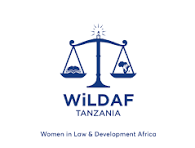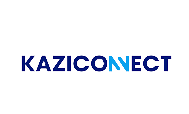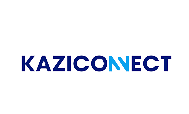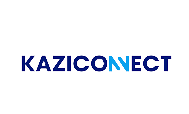
Project Officer: Legal Aid 🎉
- Unguja North, Tanzania
- viaWiLDAF
10 months ago
Tsh
1,000,000 - 3,000,000/-
Mid Level
Non Government Organization
2 - 5 years
Bachelor Degree in Law studies, Social development or legal qualification
Job Summary
About WiLDAF:
Women in Law and Development in Africa Women in Law and Development in Africa (WiLDAF), is a pan African women’s rights network which is dedicated to promoting and strengthening strategies that link law and development to increase women’s participation and influence at community, national, region and international levels.
It was founded in February, 1990 in Harare Zimbabwe – following the NGO forum held within the context of the UN Decade for women- and, whose theme was “Women rights and Development: Network for Empowerment in Africa”. Since then, the organization has established chapters in 26 African countries, including Tanzania, constituting over 350 organizations and 3,000 individuals who share these objectives. WiLDAF has 20 years of experience and excellent track record to advance women’s rights and their status in Tanzania. This is because gender equality is not only a fundamental right, but also a necessary foundation for peaceful, prosperous and sustainable world.
Our Focus Areas Of Intervetion And Priority Programs:
Project Summary:
Women participation and representation in leadership and decision-making process is recognized by international, regional, and national legal instruments. Recognizing the role of women in leadership and decision-making processes, Tanzania retains a system where women are allowed, through an affirmative action introduced by Article 66(1)(b) of the Tanzanian Constitution, women have been assigned 30% in parliament and all local government elections. Section 86A (1) of the Local Government (Elections) Act provides expressly that: ‘There shall be women special seats in the local authorities as provided for under the Local Government (District Authorities) Act and the Local Government (Urban Authorities) Act.’ See also Regulation 61(1) of the Local Authorities (Councilors’ Elections) Regulations (2020), G.N. No. 401 published on 5/6/2020.
Despite the efforts made by the Government and other stakeholders, women are underrepresented in decisionmaking bodies as per gender parity threshold of 50:50. Currently, women occupy only 37.6% of parliamentary seats while at the district level and below, they represent only 10% of the political elite. The ineffective participation and underrepresentation are caused by both institutional and socio-cultural challenges, which include gender blind laws and policies governing democratic processes, patriarchy norms and values embedded in the social settings.
WiLDAF commits to engaging and collaborating with the Government and Political Parties to improve the conducive legal and institutional environment for women participation in politics and leadership positions. WiLDAF will also engage with the private sector to ensure women’s representation in leadership positions in companies and institutions is strengthened. WiLDAF believes in strong the feministic ideology towards achieving 50:50 representation of women and men in all levels of decision-making positions, since feminist leadership is both about who holds power, what you do with power, self-awareness, self-care, dismantling bias and supporting inclusion. Thus, WiLDAF believes that to challenge longstanding stereotypes regarding who is entitled to hold power, gender parity in positions of power is an important objective to be pursued. This is a necessary, but not sufficient, step to ensure feminist leadership,which shares power and responsibility in an inclusive, intersectional, and participatory manner.
In the coming five years, WiLDAF strives to build strong feminist movements committed to an intersectional approach that will challenge the current systems of criminalization, discrimination, and inequality. WiLDAF will support like-minded partners that promote innovative solutions, through processes of co-creation and collaboration. WiLDAF is committed to promote feminist leadership which offers new, transformative, and
innovative approaches that model broader participation of diverse partners, and a greater commitment to democratic principles.
WiLDAF envisions a feminist movement which will strengthen capacity of women-led and girls-led organizations to carry out agendas and hold government accountable. Special attention will be given to the impact of COVID19 on households where access to education was impeded, and the burden of care increased. WiLDAF is committed to strengthen feminist movement that will draw attention on the critical need for increased gender segregated data collection, use, and financing to support evidence-based policymaking.
Women in Law and Development in Africa Women in Law and Development in Africa (WiLDAF), is a pan African women’s rights network which is dedicated to promoting and strengthening strategies that link law and development to increase women’s participation and influence at community, national, region and international levels.
It was founded in February, 1990 in Harare Zimbabwe – following the NGO forum held within the context of the UN Decade for women- and, whose theme was “Women rights and Development: Network for Empowerment in Africa”. Since then, the organization has established chapters in 26 African countries, including Tanzania, constituting over 350 organizations and 3,000 individuals who share these objectives. WiLDAF has 20 years of experience and excellent track record to advance women’s rights and their status in Tanzania. This is because gender equality is not only a fundamental right, but also a necessary foundation for peaceful, prosperous and sustainable world.
Our Focus Areas Of Intervetion And Priority Programs:
- Increased access to Justice for Women, Girls, And Other Marginalized Citizens
- Reduced Gender Based Violence to and Violence Against Women And Children
- Strengthened Women’s and Young Women’s Participation In Leadership And Feminist Movements.
- Increased Access to Sexual And Reproductive Health And Rights (SRHR) And Bodily Autonomy
- Enhanced Women Economic Justice And Rights
- Strengthened Partnership And Institutional Capacity That Is Supported By A Good Governance Framework That Is Gender Inclusive And Sustainable
Project Summary:
Women participation and representation in leadership and decision-making process is recognized by international, regional, and national legal instruments. Recognizing the role of women in leadership and decision-making processes, Tanzania retains a system where women are allowed, through an affirmative action introduced by Article 66(1)(b) of the Tanzanian Constitution, women have been assigned 30% in parliament and all local government elections. Section 86A (1) of the Local Government (Elections) Act provides expressly that: ‘There shall be women special seats in the local authorities as provided for under the Local Government (District Authorities) Act and the Local Government (Urban Authorities) Act.’ See also Regulation 61(1) of the Local Authorities (Councilors’ Elections) Regulations (2020), G.N. No. 401 published on 5/6/2020.
Despite the efforts made by the Government and other stakeholders, women are underrepresented in decisionmaking bodies as per gender parity threshold of 50:50. Currently, women occupy only 37.6% of parliamentary seats while at the district level and below, they represent only 10% of the political elite. The ineffective participation and underrepresentation are caused by both institutional and socio-cultural challenges, which include gender blind laws and policies governing democratic processes, patriarchy norms and values embedded in the social settings.
WiLDAF commits to engaging and collaborating with the Government and Political Parties to improve the conducive legal and institutional environment for women participation in politics and leadership positions. WiLDAF will also engage with the private sector to ensure women’s representation in leadership positions in companies and institutions is strengthened. WiLDAF believes in strong the feministic ideology towards achieving 50:50 representation of women and men in all levels of decision-making positions, since feminist leadership is both about who holds power, what you do with power, self-awareness, self-care, dismantling bias and supporting inclusion. Thus, WiLDAF believes that to challenge longstanding stereotypes regarding who is entitled to hold power, gender parity in positions of power is an important objective to be pursued. This is a necessary, but not sufficient, step to ensure feminist leadership,which shares power and responsibility in an inclusive, intersectional, and participatory manner.
In the coming five years, WiLDAF strives to build strong feminist movements committed to an intersectional approach that will challenge the current systems of criminalization, discrimination, and inequality. WiLDAF will support like-minded partners that promote innovative solutions, through processes of co-creation and collaboration. WiLDAF is committed to promote feminist leadership which offers new, transformative, and
innovative approaches that model broader participation of diverse partners, and a greater commitment to democratic principles.
WiLDAF envisions a feminist movement which will strengthen capacity of women-led and girls-led organizations to carry out agendas and hold government accountable. Special attention will be given to the impact of COVID19 on households where access to education was impeded, and the burden of care increased. WiLDAF is committed to strengthen feminist movement that will draw attention on the critical need for increased gender segregated data collection, use, and financing to support evidence-based policymaking.
Duties And Responsibilities
The Program Officer will assist in coordination and administer all aspects of the ongoing WiLDAF legal aid and women participation in leadership and feminist movements programs which will include planning, budget and controlling program activities. The position holder will support grantees on key issues among others advocacy on gender equality and legal empowerment, access to justice through paralegal work and community prevention mechanisms on gender-based violence while keeping abreast with changing legal aid knowledge and best practice. The role will also provide mentoring and guidance to program partners.
Other Duties and Responsibilities will include;
General:
Planning:
Grant making and grant management:
Programs:
Other Duties and Responsibilities will include;
General:
- Assisting in coordination of WiLDAF program activities and Capacity development of WiLDAF grantees and implementers towards achieving expected results in accordance with the annual strategic plan.
Planning:
- Assist in the formulation of WiLDAF Annual Plans including, in close collaboration with Senior Programs Manager, the budget for the Programs and ensure proper implementation.
- Plan the delivery of the overall program and its activities, outputs and results in accordance with the Strategic Plan of WiLDAF.
- Develop new initiatives, innovative approaches to support the strategic direction of the program
- Develop a program evaluation framework to assess the strengths of the program and to identify areas for improvement.
- Develop draft funding proposals for the program to ensure the continuous delivery of services.
- Oversee the formulation of detailed annual plans, including budgets, for the Head of Programs and Programs officer.
- Participate in monitoring program implementation progress, ensure adherence to the program annual work plan, budgets, prepare revisions (if required) and evaluate annual plan performance
- Organize and participate in program quarterly review sessions and prepare a report to that effect.
- In collaboration with the Capacity Development Officer develop yearly outreach program plan according to program needs and capacity development.
- Develop draft funding proposals for the program to ensure the continuous delivery of services
- Develop a program evaluation framework to assess the strengths of the program and to identify areas for improvement
Grant making and grant management:
- Ensure proper grant-making and grant management for all WiLDAF implementing partners with a special view to transparency through proper reporting and result orientation of grantees.
- Propose to Head of Programs proposals for grant award and their rationale.
- Closely monitor the development of costs per case, person reached with legal education.
- Provide proposals, ideas and analysis on impact measurement of the WiLDAF interventions e.g. the costs saved by dealing with GBV cases, the benefits generated by securing property rights for women in inheritance cases etc.
Programs:
- Contribute to regular review of the WiLDAF Strategic Plan and Theory of Change and logical framework.
- Communicate with implementing partners, clients and other stakeholders to gain community support for the program and to solicit input to improve the program.
- Liaise with other officers to ensure effective and efficient program delivery
- Coordinate the delivery of services among different program activities to increase effectiveness and efficiency.
- Provide quarterly, semi-annual and annual reports on the program to Head of Programs
- Ensure that the program operates within the approved budget.
- Provide required information to have invoices generated and submitted to Head of Programs according to the established timelines
- Identify and evaluate the risks associated with program activities and take appropriate action to control the risks
- Monitor the program activities on a regular basis and conduct an annual evaluation according to the program evaluation framework.
- Report evaluation findings to Senior Programs Manager and recommend changes to enhance the program, as appropriate.
- Actively represent WiLDAF in programmatic forums for women’s rights, forge partnerships with like-minded organizations in order to benefit from expertise and experience available as well as to avoid duplications of efforts and funding.
- Ensure that all program interventions are measurable and be measured against the indicators as mentioned in the WiLDAF logical framework, that all capacity development intervention contributes to increased sustainability of legal aid
- Tanzania, measure at least OCA at start and end of capacity development interventions and ensure that WiLDAF grantees and other legal aid providers enter data in the database, that progress is made to make use of ICT in data collection and that proper data analysis is performed by the WiLDAF.
Education Other Skills Required
- Bachelor Degree in Law studies, Social development or legal qualification
- Legal Knowledge that is strong understanding of local, national and international laws
- Legal practice prior to experience in practicing law, preferably in the relevant field
- A minimum of 3 years relevant experience in program management
- Demonstrated experience in program planning, monitoring and coordination of CSOs particularly those working with provision of legal aid and its stakeholder
Core Attributes and Skills:
- Knowledge of program implementation and management
- Knowledge of legal aid, legal education, human rights awareness creation and legal empowerment
- Knowledge on local government structures in Tanzania
- Creativity, strategic, innovative and analytical thinker with the ability to manage multiple projects
- Must be highly organized and able to work well with others
- Must have strong written and oral communication skills in both Kiswahili and English
- Focus on Client centered approaches and the ability to respond to the community needs.
- Foster teamwork and ability to work with other in setting goals and making decisions.
Code of Conduct:
To uphold WiLDAF’s financial policies and procedures, staff code of conduct and values at all times during the course of your post with the organization. Acting as a role model in the course of your duties
How to Apply:
Interested candidates who fulfill the requirements are required to send their Cover letters and CVs to cvs@kaziconnect.co.tz OR upload your CV directly on www.kaziconnect.co.tz where full job descriptions are on display. People Living with Disabilities (PWDs) are highly encouraged to apply.
Only shortlisted candidates will be contacted for an assessment


